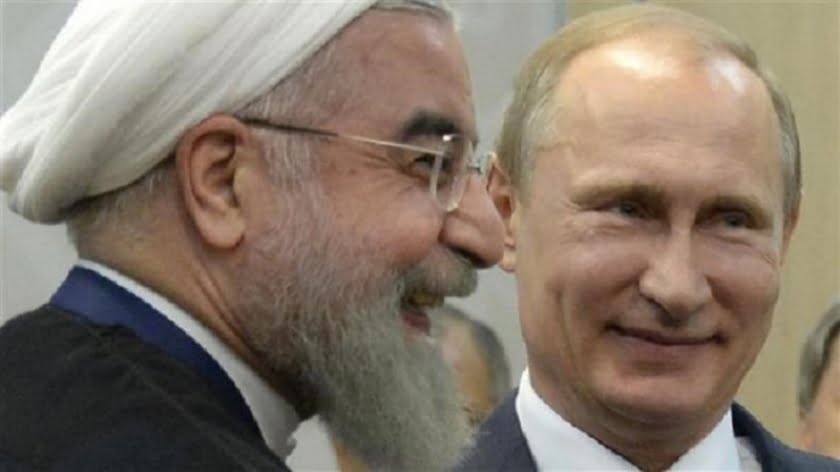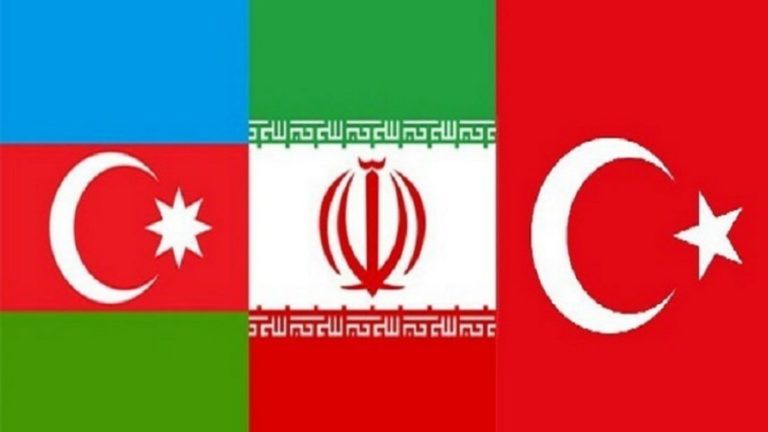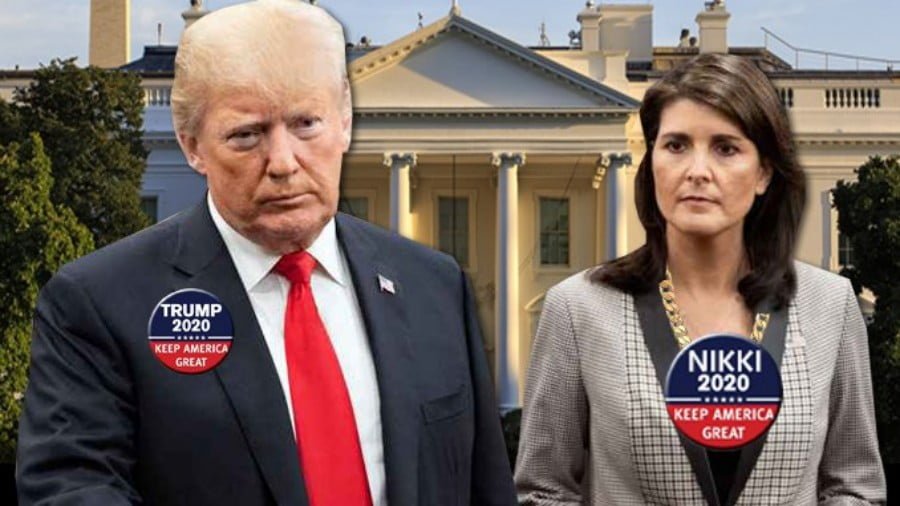Why Did Iran Spread Fake News About Russia Dispatching Troops to Afghanistan?
Russian Foreign Ministry spokeswoman Zaharova furiously slammed the fake news report last week which alleged that Presidential Envoy for Afghanistan Kabulov supposedly said that his country was considering dispatching troops to Afghanistan upon the government’s request, specifically noting that the false statement was attributed to Kabulov by only one internet edition (which just so happened to be Iran’s Mehr News Agency although she didn’t call them out by name) whereas no other media, whose representatives were also present at the Presidential Envoy’s briefing, have published such information.
***
Iran’s Failed Fake News Operation
It’s now official, Iran’s Mehr News Agency spread fake news earlier this month about Russia dispatching troops to Afghanistan. Their sensationally headlined article from 7 March proclaimed that “Russia voices readiness to dispatch troops to Afghanistan if needed“, which was purely the editors’ (quite possibly deliberate) misinterpretation of Russian Presidential Envoy for Afghanistan Kabulov’s statement during an interview that “As regards the fight against terrorism and military assistance to Afghanistan in this matter, let’s wait until there is a normal government in Kabul and we will discuss military assistance with it.” Nothing in his words even remotely hints at the possibility of sending troops to the landlocked country ostensibly to fight either the Taliban or Daesh, both of which are recognized as terrorist groups under Russian law although the Ministry of Foreign Affairs occasionally hosts the first-mentioned for peace talks.
Russia’s Stinging Rebuttal
Since Mehr News Agency is one of the most well-known international media outlets operating in Iran, the fake news claim went viral and eventually attracted the attention of Russian Foreign Ministry spokeswoman Zakharova, who furiously slammed the report. In order to not be accused of misrepresenting her words, what follows is the full report from publicly financed TASS about this diplomat’s very strong denunciation:
“Russia has never planned to deploy troops to Afghanistan, Russian Foreign Ministry Spokeswoman Maria Zakharova said, commenting on a foreign article which claimed that Russian Presidential Envoy for Afghanistan Zamir Kabulov allegedly speculated about possible deployment of forces to fight terrorism upon Afghan government’s request. ‘I would like to state with all responsibility — and I use this phrasing intentionally — that this allegation is absolutely false and has never been expressed in any form by the Russian presidential envoy,’ she said. ‘Russian position on this issue is well known: under no circumstances did Russia plan to send its troops to Afghanistan and it does not plan to do so now.’
Zakharova explained that only issues of ‘possible expansion of cooperation with Afghanistan on fighting terrorism and drug threat through military-technical sphere and training of qualified personnel, which happens already’ could be on the table. According to the spokeswoman, the false statement was attributed to Kabulov by only one internet edition. No other media, whose representatives were also present at the Presidential Envoy’s briefing, have published such information. ‘All this could be viewed as a very poor interpretation of the Russian diplomat’s words. I hope we are not dealing with intentional distortion or some fake news. I rather believe that we are dealing with wording problems in those who prepared this story for the website,’ she said.
The spokeswoman called on the media to fulfill their duties professionally and responsibly, because such distortion of Russian officials’ statements might ’cause big problems with perception of messages in various countries.'”
She understandably didn’t call Mehr News Agency out by name and also gave it a “face-saving” way out because Iran is still one of Russia’s strategic partners despite Moscow actively “balancing” it in the Mideast in pursuit of its own interests and in close coordination with its de-facto ally “Israel“, as the author explained in his previous piece about the topic titled “Russia’s Middle East Strategy: ‘Balance’ vs. ‘Betrayal’?“
An Indo-Iranian Plot?
Iran might therefore have deliberately spread this fake news out of geopolitical spite instead of “innocently misinterpreting” Kabulov’s words, though the author suspects that it might be even deeper than that. He wrote an analysis earlier in the month pointing out that “India And Iran Aren’t Too Happy About The Afghan Peace Deal“, which drew attention to the fact that both of them despise the Taliban in spite of the Islamic Republic occasionally cooperating with it, though it’s unclear if this is with the organization as a whole or just one of its factions. In any case, those two aforementioned countries are against the US-Taliban deal because they realize that it brings the national liberation movement one step closer to regaining power in the country, which would run contrary to their long-term interests. Since Iran is the most directly affected of the two, it makes sense why one of its outlets would be at the forefront for spreading fake news about Afghanistan.
That doesn’t convincingly explain why Iran targeted Russia, though, which is why some further insight is necessary in order to better understand that. Kabulov praised the Afghan peace deal as “directly beneficial for Russia“, which must have drew both Iran and its “senior partner” India’s ire, hence why the latter might have “encouraged” the former (its “junior partner”) to begin contemplating infowar scenarios against Moscow once the “opportunity” arose. And arose it did when Kabulov gave an interview earlier in the month where he said that the Taliban “will need good relations with Russia” if/when it returns to power, but also remarking that “We told them that we won’t accept a return to the Islamic Emirate” in the sense of the strict fundamentalist Islamic laws that characterized its brief rule (even though Moscow would be powerless to influence its style of governance if the group decided to go that route).
It was this last-mentioned quip about how Russia “won’t accept a return to the Islamic Emirate” and Kabulov’s other words around that time about how Russia will “wait until there is a normal government in Kabul and we will discuss military assistance with it” which Iran’s “perception managers” (possibly with India’s “supervisory” assistance) exploited to push their fake news that “Russia voices readiness to dispatch troops to Afghanistan if needed”, the purpose of which was to discredit Russia’s pragmatic peacemaking relations with the Taliban so as to stir up trouble for Moscow. Russia will come to depend on the Taliban’s security guarantees if it hopes to utilize the geostrategic country for actualizing its N-CPEC+ workaround to the seemingly failed North-South Transport Corridor (NSTC) via Iran to India, as explained in the author’s work about how “India Is Just As Much To Blame As America Is For Russia Abandoning Its Iran Rail Plans“, so damaging ties with it could be dangerous.
Concluding Thoughts
There’s no longer any doubt that Iran spread fake news about the possible deployment of Russian troops to Afghanistan, with the only remaining questions being whether it did so deliberately and with possible Indian “encouragement”. Both Tehran and New Delhi are against the US-Taliban peace deal and don’t approve of Moscow’s pragmatic peacemaking outreaches to the Taliban, especially since the latter are partially designed to ensure the security of the prospective N-CPEC+ corridor to the global pivot state of Pakistan as a workaround to the stalled NSTC. It therefore follows that Iran and India have shared strategic interests in undermining Russia’s ties with the Taliban, which could explain by they might have jointly designed this infowar plot in order to cause problems between those two. Seeing as how both countries are still Russia’s strategic partners, Foreign Ministry spokesman Zakharov didn’t call them out by name, but Moscow is now aware of their mischievous intentions.
By Andrew Korybko
Source: One World







